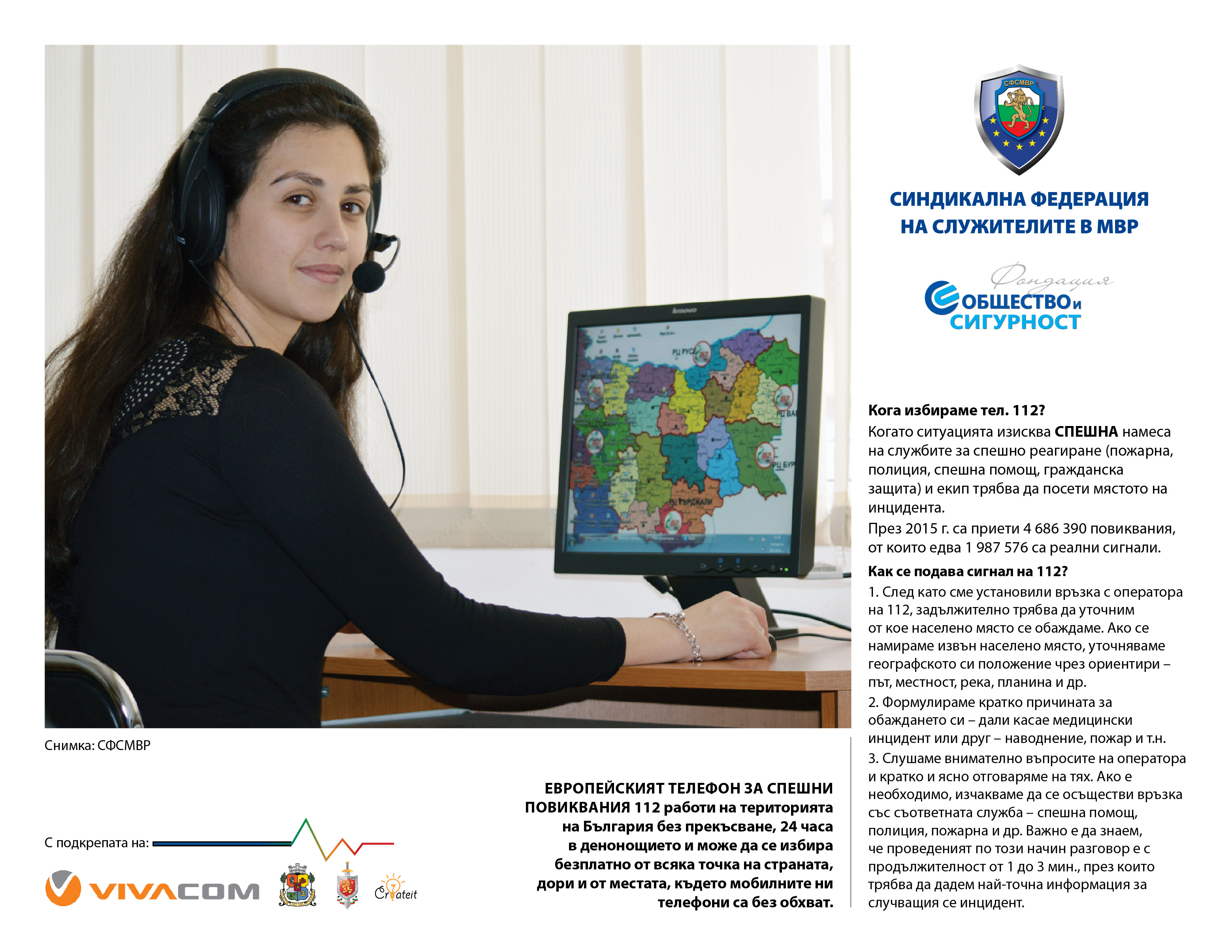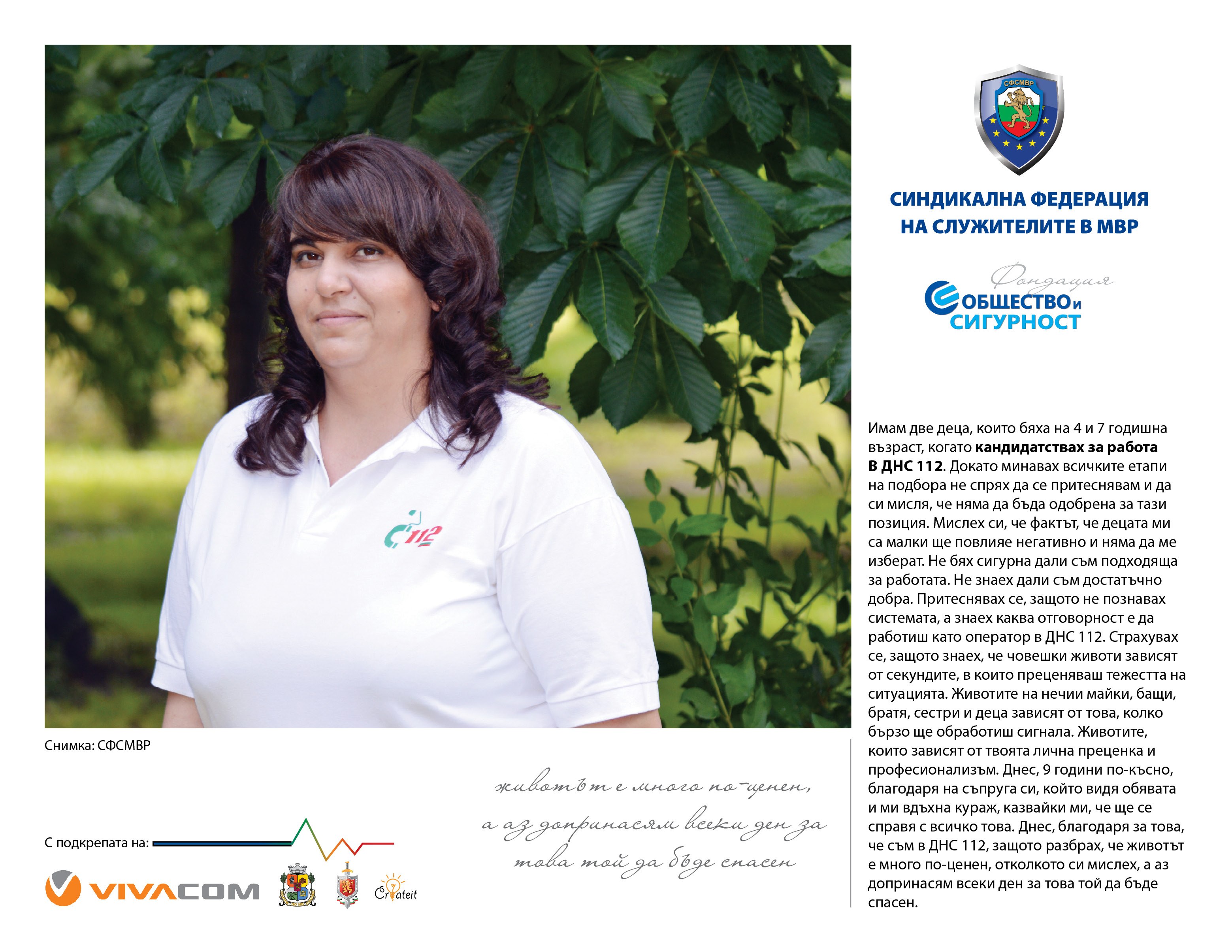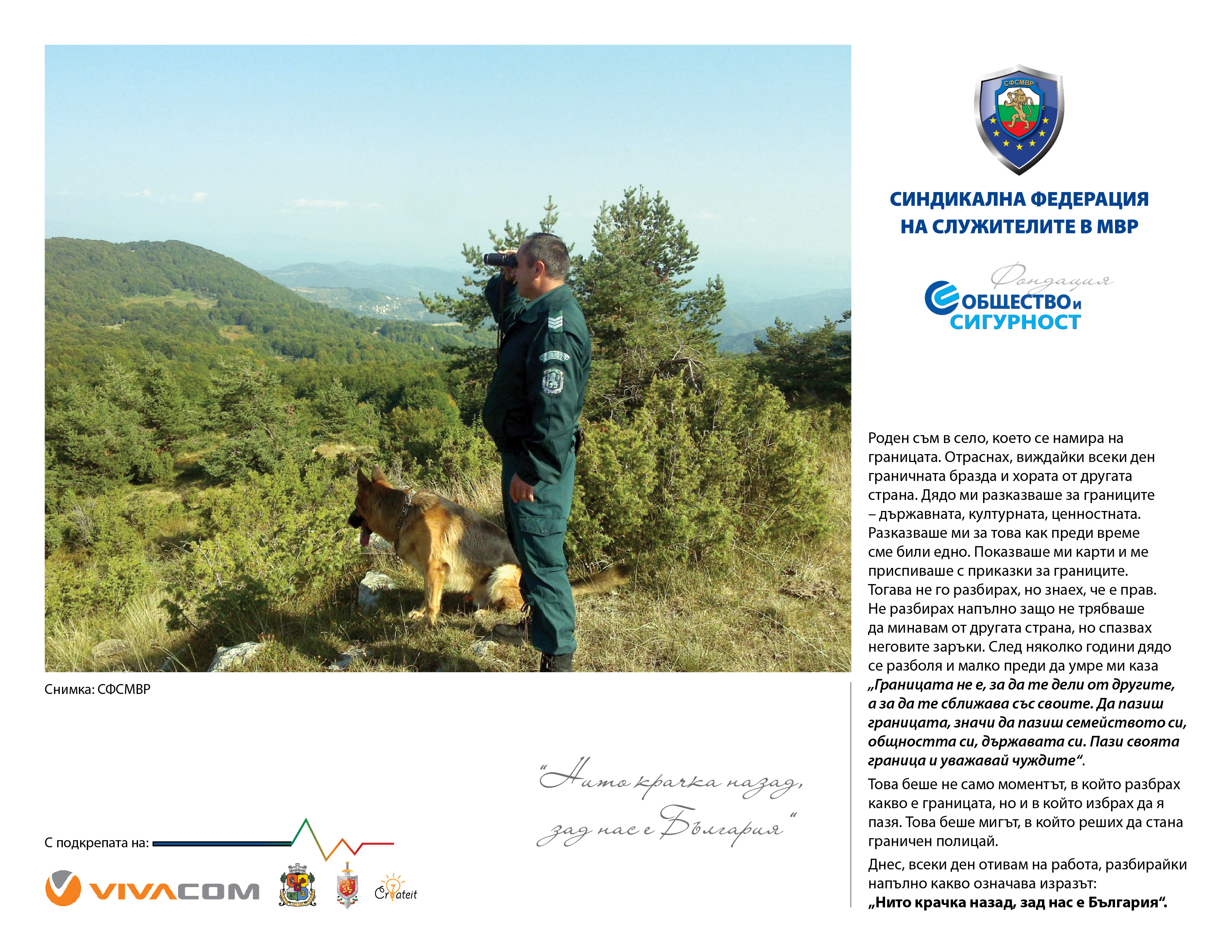- 01.09.2016
The detained foreigners in Bulgaria…
- 01.09.2016
When we have to call on 112?
When we are calling on 112? When the situation requires URGENT intervention of the emergency services (fire brigade, police, emergency, civil protection) and a team have to be sent at the accident. How to report a sygnal on phone 112? 1. As soon as you have contact with the operator…
- 01.09.2016
I work in National System 112
I have two children who were 4 and 7 years old when I applied for a job in the 112 Emergency line in Bulgaria. While I was passing all phases of the recruitment I worried and was sure I will not be approved for this position. I thought that my…
- 01.09.2016
The issues in National System 112 in Bulgaria
In 2015, 4,686,390 emergency calls are accepted and only 1,987,576 are real. Who is responsible for the unreal signals received? Who educates the citizens? Who and how impose sanctions for the unreal signals? Who measures the potential risk to the citizens? The debate on the reform of the Ministry of…
- 19.07.2016
I keep the border of the Republic of Bulgaria!
“I was born in a village which lies on the Border. I grew up seeing every day the Border fence and people on the other side. My grandfather told me stories about the Borders. He told me everything about my country, culture, values. He told me a long time ago we were one…
- 19.07.2016
We, the Bulgarians!
“Do you know, we all Bulgarians, are sad people. We taunt the police, sing humiliating songs about police officers, spit it out and caricature the system, and when we are in trouble precisely the police officer is the only one who can help and immediately we are changing the attitudes…
- 23.06.2016
Children on duty!
A few months ago I was out playing basketball with my children when the ball rolled into the street. I went to it, but suddenly the laugh of my children disappeared and they froze. They saw two patrol cars on the corner. The vehicles turned and were moving slowly towards…
- 30.03.2016
Managing traumatic stress: Coping with terrorism
Terrorism threatens a society by instilling fear and helplessness in its citizens. It seeks to hold a society or government hostage by fear of destruction and harm. When terrorist acts occur, people generally look for ways to cope with the acute stress and trauma. Terrorism evokes a fundamental fear of…
- 09.03.2016
Meet Sonya. One of the women who are supporting the men who are keeping us safe.
“My husband is devoted to his profession – he is burning in it and is giving everything to do his job in the best possible way. It hurts when in the evening he comes back at home and I see his pain and frustration. I can feel it with every part…
- 07.03.2016
Meet Tanya. One of the women, telling us the real story about the dreams of the man who works in the Ministry of Interior
“I live with a man who from his an early age dreamed to be a police officer. A man who is driven by the desire to care and help people. Today, this young man has many years of experience in the Ministry of Interior . Every night when I look into…
- 15.02.2016
Let’s talk about Ministry of Interior by facts
In 2015, 3168 people have left the Ministry of Interior. More than 2/3 of them are working at field and are at operational positions. From all employees quit the system 1 is a senior, 466 are managers, 688 of are at executive and 2013 are at junior executive positions. 444…
- 15.01.2016
Official position of the Society and Safety Foundation about the Minister of Interior’s statement
Society and Safety Foundation is one of the few civil organizations in Bulgaria which puts as a priority on its activities the improvement of the “civil security” service provided by the Ministry of Interior, which is directly linked with the improvement of the quality of work and working conditions in the MoI’s system. Regarding…
- 13.02.2015
How do we see the participation of civil and professional organizations in Ministry of Interior’s reforming?
The most important element of the whole process is institutionalized of forms and procedures for citizen participation in reforming the Ministry of Interior. The second crucial component is uniting around the need to prepare a long-term strategy to reform the Ministry of Interior, to be adopted as the Ministry of…
- 03.02.2015
The failed reform!
Ministry of Interior is the only unreformed Ministry in Bulgaria, but also one of the ministries in which structural changes are the most numerous. One of the major structural changes that contribute the MoI to become a mega-ministry is the closure of Ministry of Emergency Situations and merger it with…
- 03.02.2015
Why it is necessary and important in the whole process of reforming trade unions to participate?
Reforms that are realized at the time, as mentioned, are parceled and ineffective. Reforms in the Ministry of Interior needs to be long-term, have consulted with civil and professional organizations, to explain the effect of a change in the life of every citizen and employee in the Ministry of Interior,…





